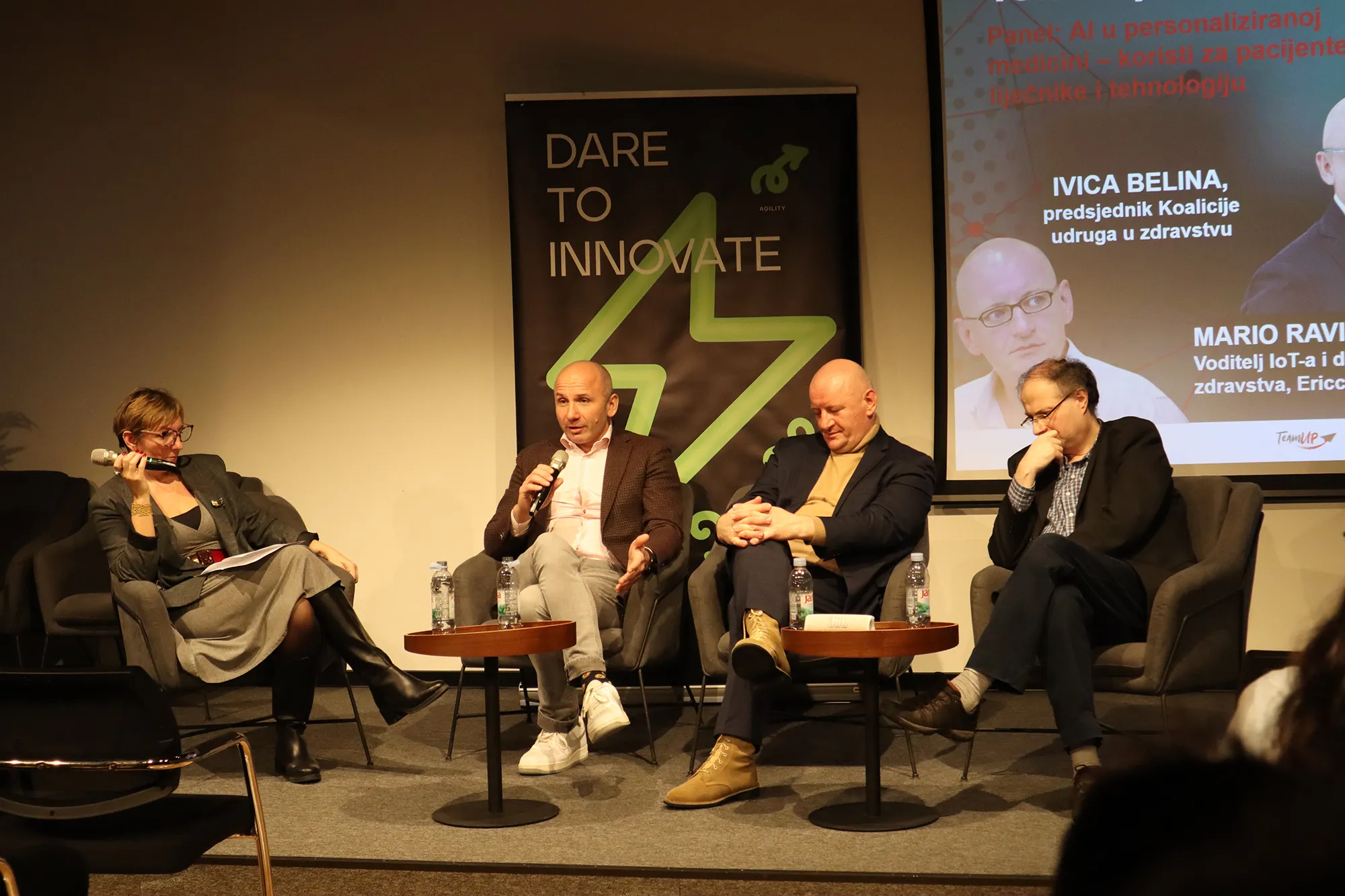AI in Personalized Medicine – Benefits for Patients, Doctors and Technology
March 11, 2025

The recent TeamUp x Health event brought together healthcare experts, entrepreneurs and innovators to discuss the impact of artificial intelligence (AI) on personalized medicine. The event, organized at the Algebra Bernays University, was an opportunity to share knowledge, network, and present innovative startup solutions.

The main part of the event was the panel discussion titled AI in Personalized Medicine – Benefits for Patients, Doctors and Technology. The panelists were Prof. Robert Likić, PhD, professor at the School of Medicine in Zagreb and the main coordinator for the implementation of the UpToDate system at the University Hospital Centre Zagreb; Mario Ravić, IoT and Digital Health Manager at Ericsson Nikola Tesla, and Ivica Belina, President of the Coalition of Associations in Healthcare. The discussion was moderated by Katarina Gvozdanović from the Department of Pharmacoepidemiology of the Andrija Štampar Teaching Institute of Public Health.
The panel provided the audience with important insights into the state of personalized medicine, the implementation of AI, and the obstacles that stand in the way of wider application. It was pointed out that artificial intelligence already enables faster and more precise diagnostic procedures, but that medicine, as a conservative profession, is slow to adapt to new technologies.
Robert Likić emphasized that AI significantly increases the efficiency of doctors. He also revealed his predictions for increased use of artificial intelligence in psychotherapy.
On the other hand, Ivica Belina underlined that the system in Croatia is not yet ready to fully embrace personalized medicine. There is no unified hospital system and health data management is inadequately regulated.

Mario Ravić emphasized that personalized medicine is still in the early stages of development and one of the key factors for its implementation is quality research. He stated that successful companies cooperate with institutes and that significant advances in healthcare can only be achieved through joint work between companies and research centers, especially if they are located in large hospital centers. Ravić pointed out that the establishment of the Croatian Health Data Center (CHDC) which was initiated by the Croatian Institute of Public Health was extremely important because it will provide access to health data for secondary use in one place. Additionally, entering the second half of the EDIH AI4Health.Cro project, which is implemented by a consortium of 16 partners, one of which is Ericsson Nikola Tesla, has shown that there are dozens of companies that want to develop AI solutions in healthcare and that the availability and preparation of data and the availability of domain experts are extremely important in developing solutions. Both the establishment of the CHDC and the implementation of the EDIH AI4health.Cro project are vital for the development of AI solutions in Croatia in the upcoming period.
ENT Communications